World trade tensions may escalate to economic downturn by late 2019
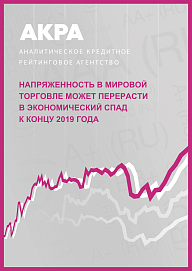
The economic outlook update for 2019–2023 mainly includes the consequences of the growing protectionism in the world trade. Mutual rise in customs duties between the U.S. and other countries is likely to lead to stagnation or economic downturn in some developed economies in 2019–2020. ACRA updates its macroeconomic forecast of October 2018, lowering the likelihood of new economic sanctions against Russia. Also, the ACRA analysts are of the opinion that the risks in commodity markets may be materialized on both the supply side and the demand side.
World trade slowdown will hold back the growth in demand for goods customarily exported by Russia. According to ACRA, chances are high that export volumes will temporarily decrease, which would become the main effect of the global economic growth slowdown on the Russian economy. If the financial regulatory framework turns out to be helpful in withstanding the decline in exports and avoiding a financial stress in the banking sector, the Russian economy may go through an unfavorable period with the growth rates of 0.4–0.9% in 2019. In the event of a more severe decline in external demand or inadequate regulatory measures, a recession may occur (down to minus 2.5–3%). Key economic stabilization tools may survive the rainy days for Russia. The current version of the fiscal rule is more resilient to volatile external conditions than the previous ones. The inflation targeting is flexible enough and allows for deviations in the inflation dynamics from the target inflation. To minimize the foreign currency deposit conversion risk, the Bank of Russia may increase the key rate temporarily, and the Ministry of Finance of Russia may suspend purchasing foreign currencies for some time.
The publication also provides a detailed analysis of catching-up growth in middle-income economies, including Russia. In the next 10-20 years, these countries will have fewer opportunities to show catching-up growth. The convergence with high-income economies is almost at its peak. The successful catching-up growth demonstrated by middle-income countries over the past 50 years may be linked to three structural processes: urbanization, growing share of working-age population, and inclusion in global value chains. The success in catching-up growth depends on the sufficiency of incentives for investments into fixed capital and the structure of such investments. In addition, the ACRA analysts point out that creating high-performance jobs will be more important than constructing buildings and structures.
Anlytics on the topic
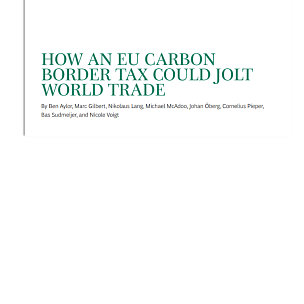
The Boston Consulting Group has prepared a report on the impact on global trade of initiatives to fight climate change and protect the environment, in particular, the EU Carbon Border Tax.
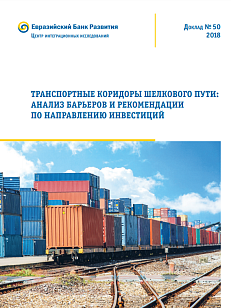
The report by the EDB Centre for Integration Studies presents an analysis of the impact that international freight traffic barriers have on logistics, transit potential, and development of transport corridors traversing EAEU member states.
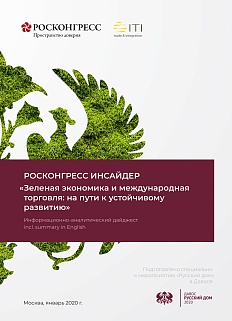
The Report was prepared for the Russia House at the World Economic Forum Annual Meeting in Davos in January 2020. Based on the analysis of foreign sources, the key issues on the agenda of the Meeting are revealed: approaches to overcoming environmental problems and ways of sustainable business transformation.
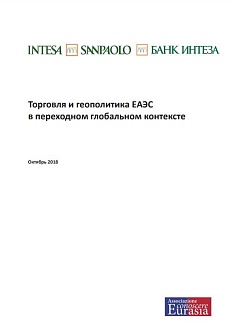
On the threshold of the XI Eurasian Economic Forum in Verona, the banking group Intesa Sanpaolo prepared a report describing the current internal and external links in trade, investment, and geopolitics of the EAEU and giving a detailed analysis of the trade relations between Italy and the EAEU in the current global context.

